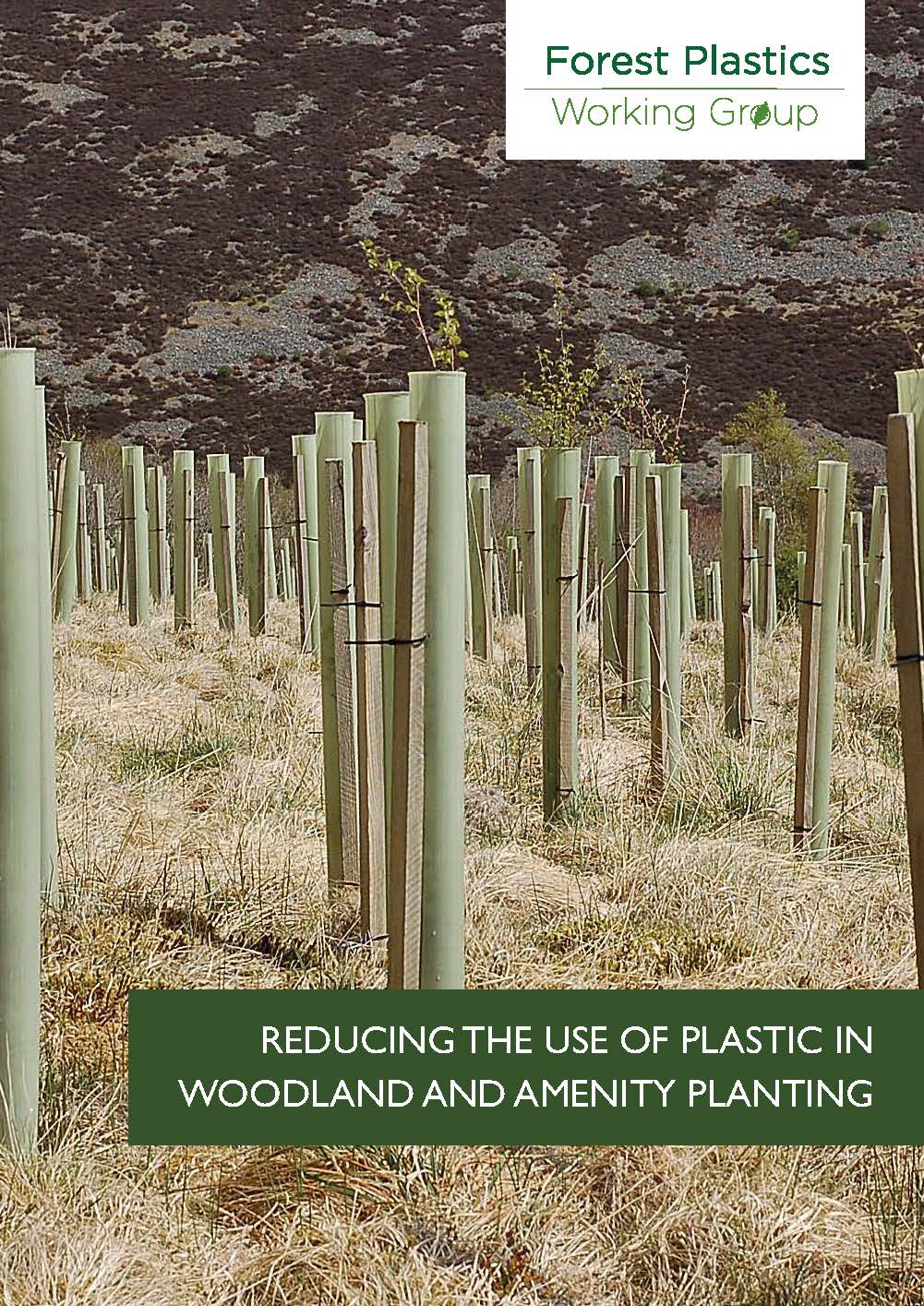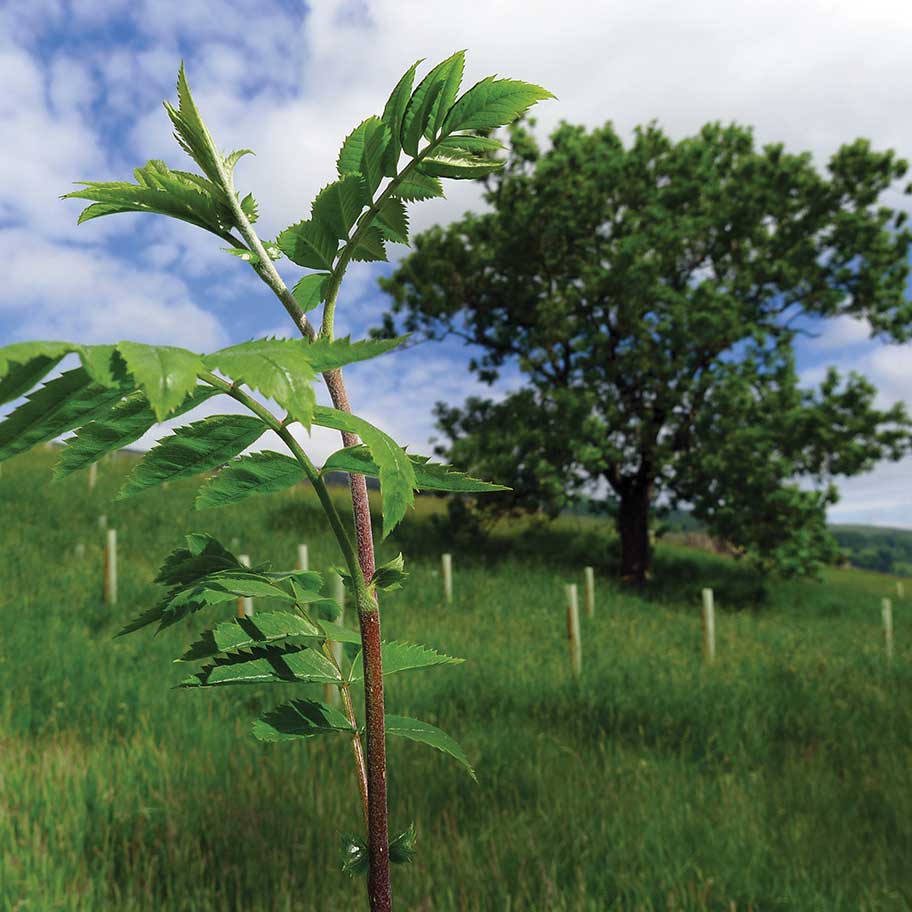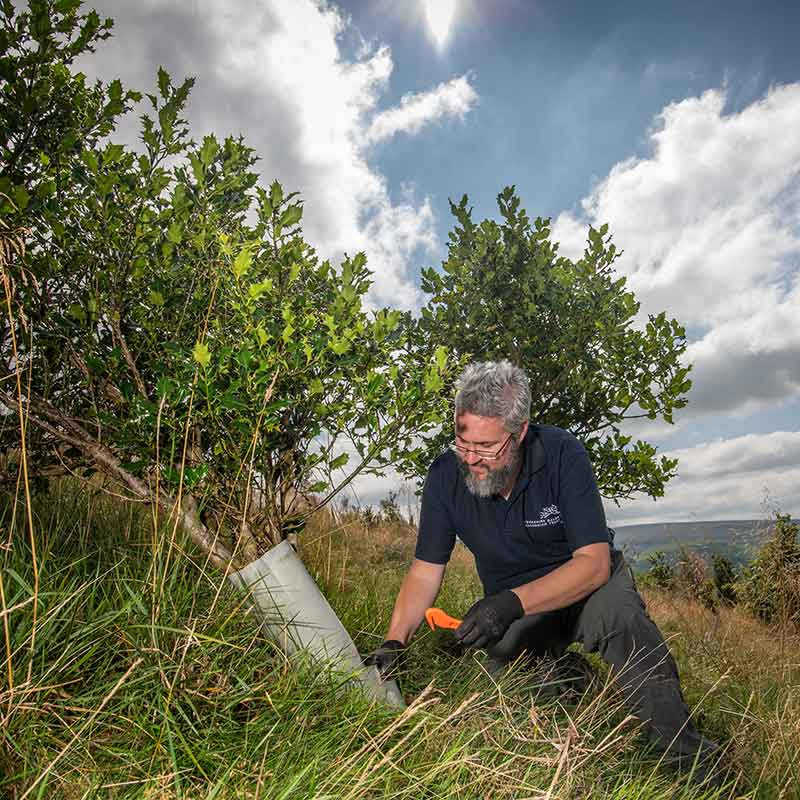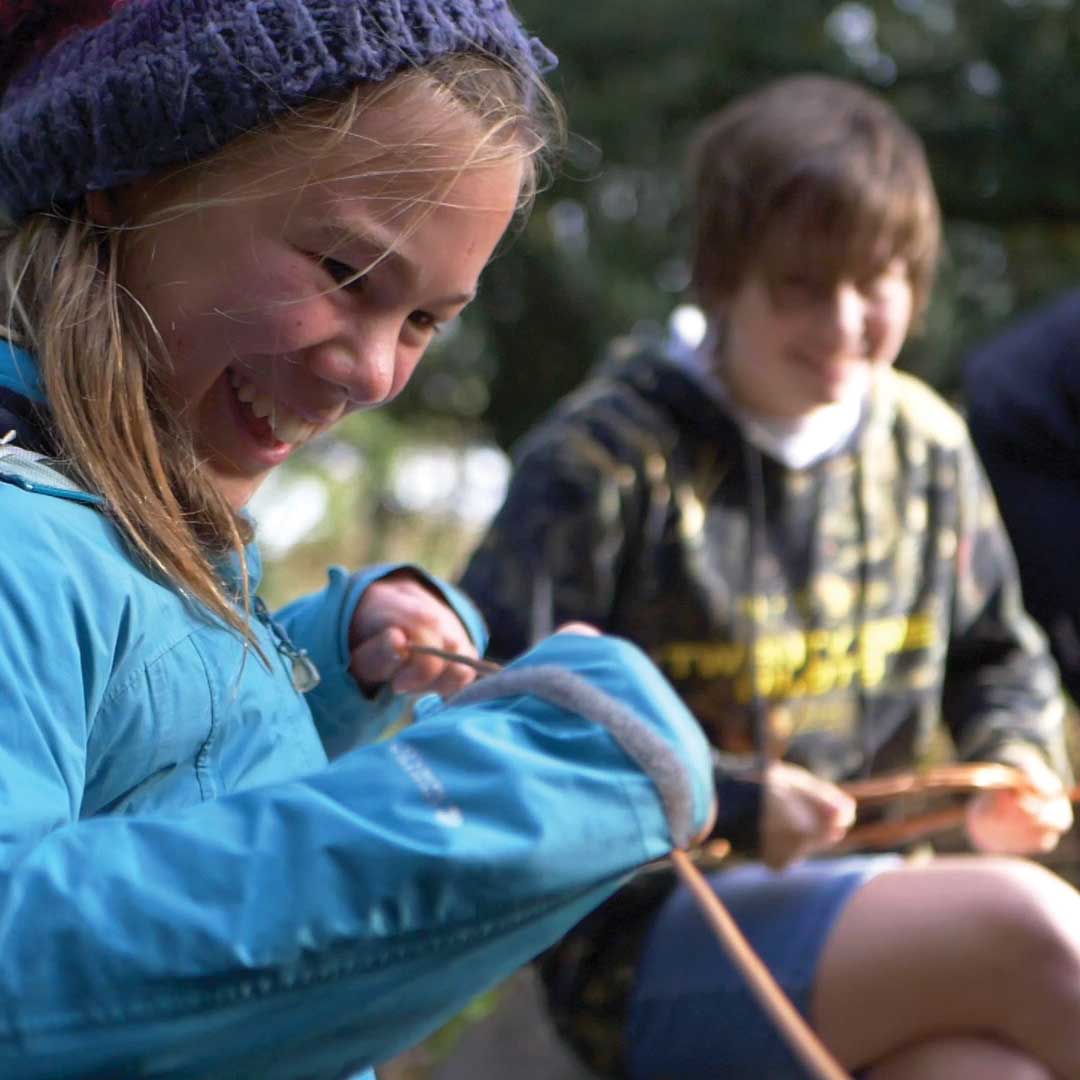Plastic Free Woodlands
Plastic tree shelters protect new trees as they grow, enabling many saplings to survive that would otherwise die. But the plastic they leave behind is polluting our soils and waterways.
YDMT is driving an sector-led response to the problem, paving a way forward for less single-use plastic in woodland creation.
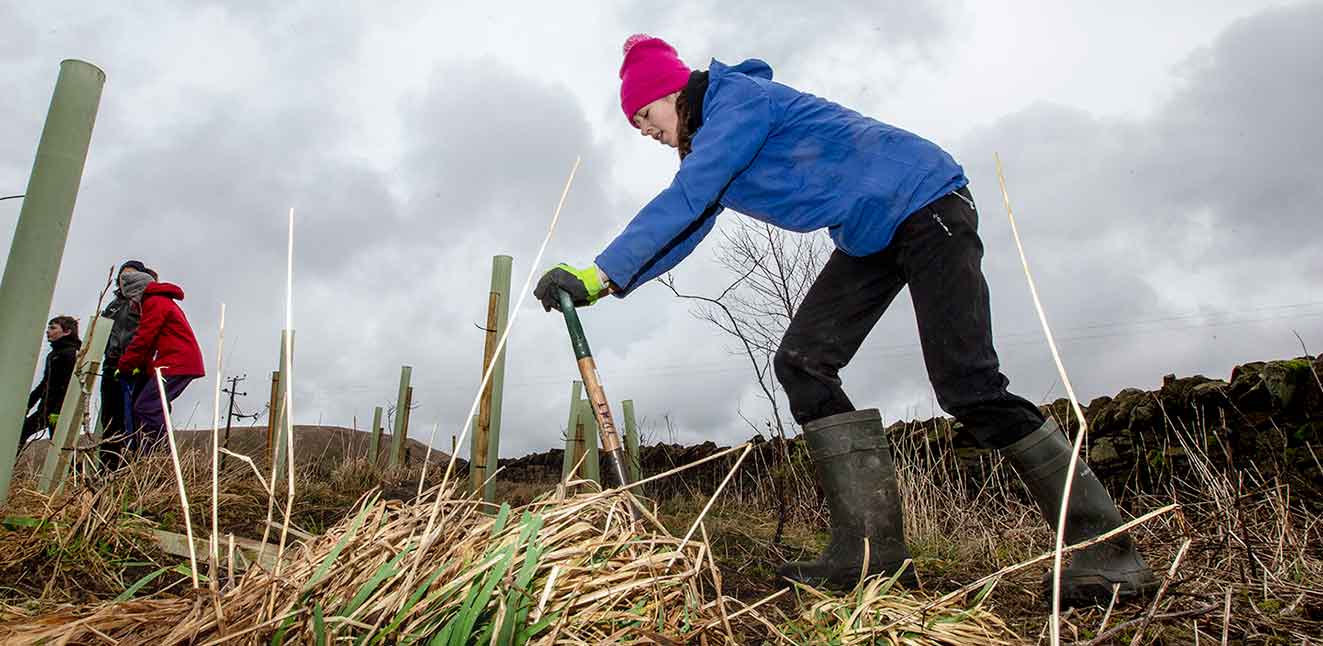
Tree shelters and plastic pollution in our woodlands
It is estimated that 16 million plastic tree shelters are used every year to protect new trees as they grow.
These shelters enable trees to survive and thrive – acting as mini greenhouses and providing protection from browsing animals, weeds and herbicides until the tree is fully established.
Most tree guards are made from single-use plastic. It was thought that plastic shelters would naturally biodegrade over time, but we now recognise that they often disintegrate into smaller fragments and find their way into our soils and waterways.
There are now some alternatives to the plastic tree shelters – but none yet that are sustainable to ensure a circular economy, compostable, biodegradable and can effectively protect saplings for the required amount of time, particularly in the uplands.
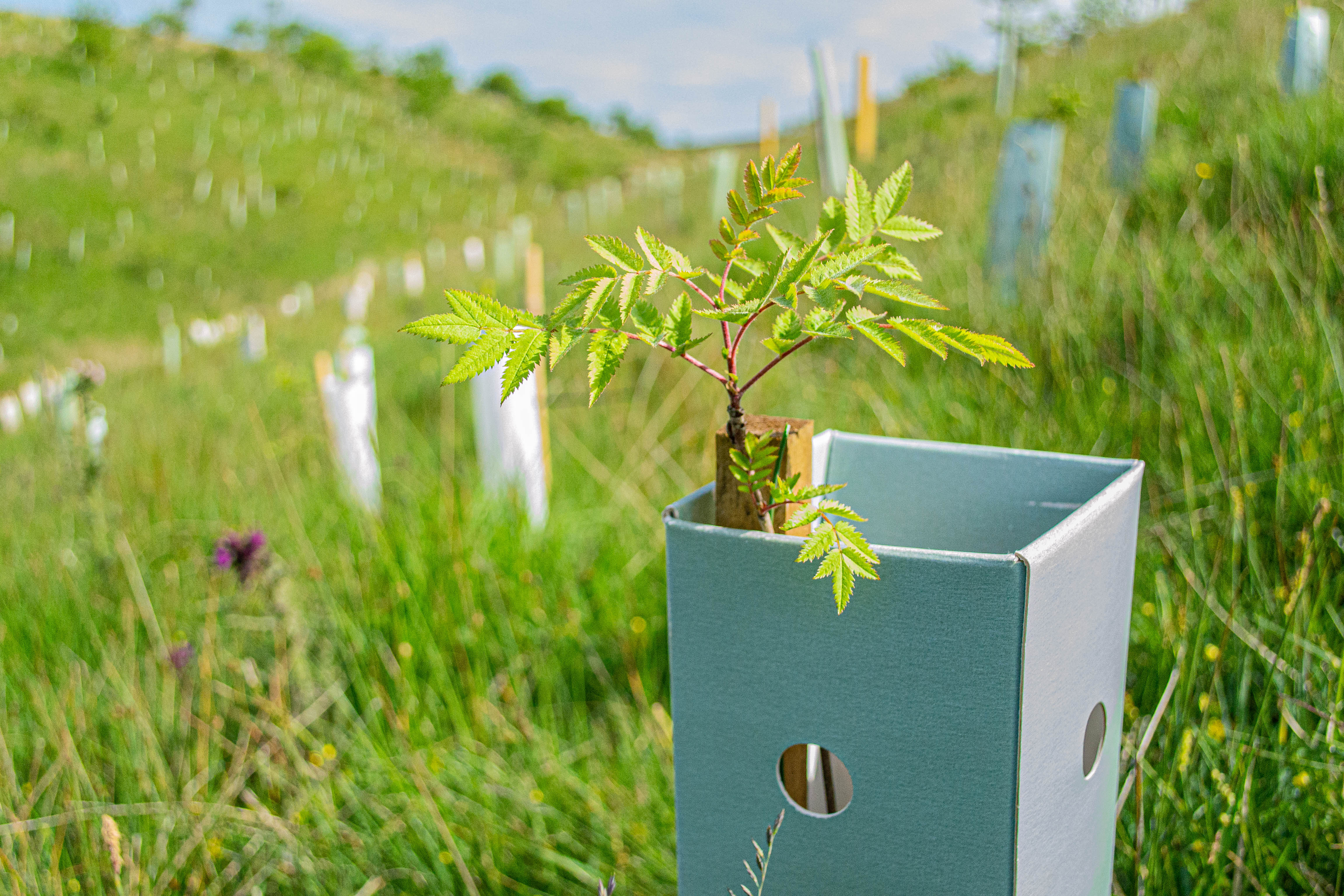
Tree planting and the future of tree shelters
The government has said up to 19% of the UK needs to be covered with trees by 2050 in order to meet its target to reach net zero emissions. That will mean planting 1.5 billion trees, at least 30,000 hectares every year.
There has never been a more critical time to re-think our approach to plastics in woodland creation.
In order to stop plastic pollution in our new woodlands all those involved in woodland creation need to work collectively to:
- Minimise the use of single-use plastic tree shelters – using alternative methods of woodland creation and management where appropriate.
- Manage existing plastic shelters responsibly and recycle them post-use.
- Call for alternative and sustainable solutions to single-use plastic tree shelters – that are either re-usable, albeit hard in practice, completely biodegradable, and ensure a circular economy.
We all have a responsibility for the problem, and a part to play in the solution.
Our Plastic Free Woodlands project is helping to address this by finding alternative solutions to plastic shelters as well as dealing with the legacy of existing plastic tree shelters across our woodlands.
We established central collection hubs for tree shelters within the Yorkshire Dales National Park in 2020. Since then 22 hubs have been made available across England, Scotland and Wales meaning anyone with redundant shelters now have a viable recycling option in partnership with Tubex. You can view the hubs and how to access them here.
YDMT-led hubs have recycled 235,000 plastic tree shelters, worked with hundreds of volunteers, and have planted more than 11,500 trees with alternatives. You can read more in our Plastic Free Woodlands Report, which details the first 18 months of the project, which was supported by the European Outdoor Conservation Association.
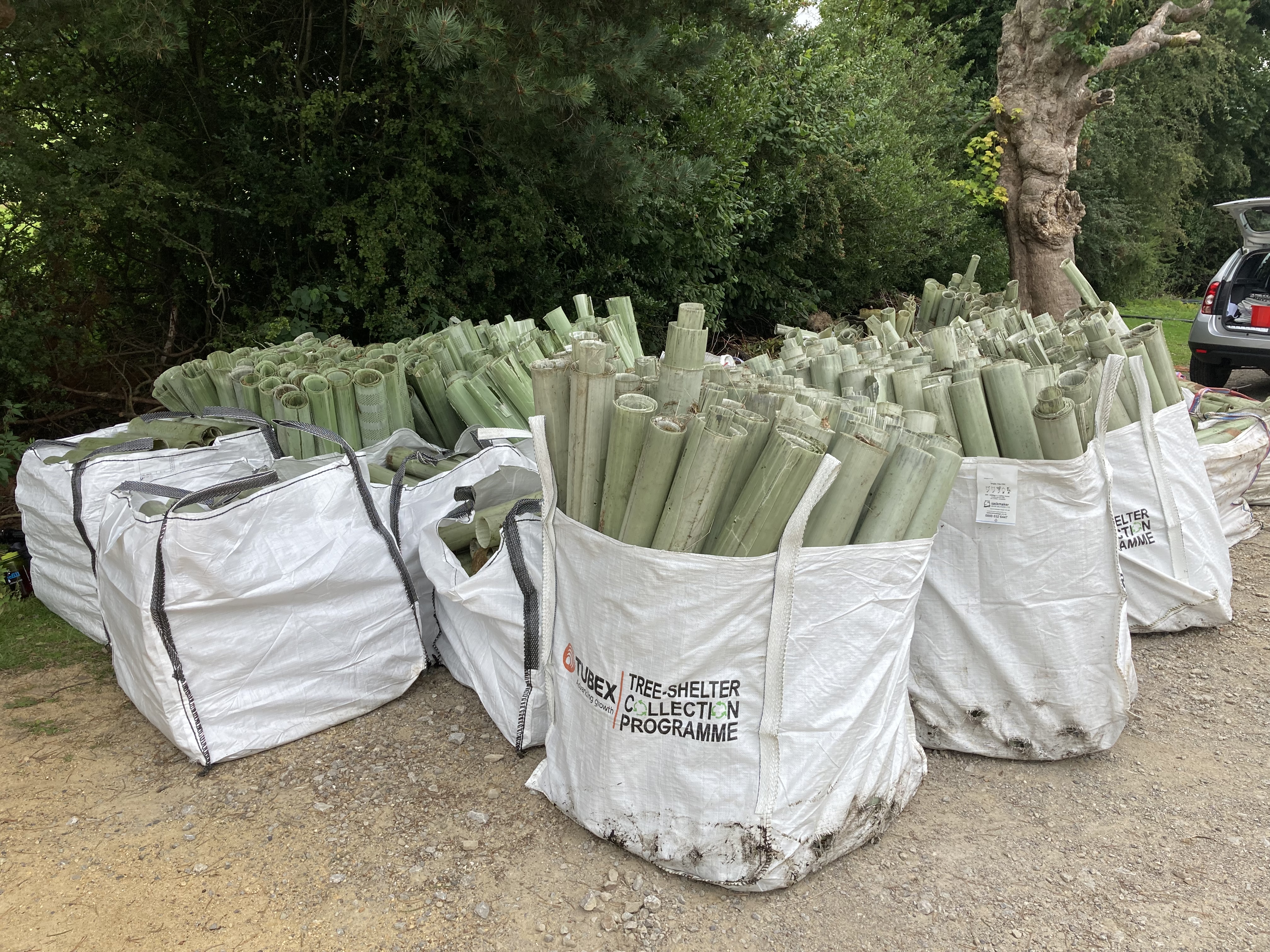
Forest Plastics Working Group
YDMT has supported the planting of almost 1.6 million trees since we first started out in 1997 working with many different organisations. So we’re in a unique position to bring people from the forestry and tree planting sector together to create a collective force for change.
In January 2020, we helped establish the Forest Plastics Working Group to provide guidance and share information about plastic use in forestry and to promote the environmental benefits of forest management.
The Forest Plastics Working Group includes a broad range of sector representatives and the group’s aims are to:
- advocate and facilitate good practice around use of plastic in woodland and amenity planting and waste compliance;
- research and share information on plastic packaging and tree shelter alternatives to ensure adverse environmental impacts are reduced,
and balanced sustainable solutions found; and - promote the environmental benefits that result from forestry and woodland management.
The group is supported by the FIEG (the Forest Industry Environment Group), Woodland Trust; National Trust; Yorkshire Dales Millennium Trust; Yorkshire Dales National Park (on behalf of the National Parks); Coillte Ireland; Natural Resources Wales; Forestry and Land Scotland; Scottish Forestry; Defra; Confor; Forest Research; Cheviot Trees Limited; Tilhill Forestry; Scottish Woodlands; Forestry England; Forestry Commission; the Chartered Institution of Wastes Management; Heart of England Forest, and the Community Forest Trust.
Our conference ‘Plastic Tree Tubes – who needs them?’ aimed to start the conversation on plastic tree guards, paving a way forward for positive action.Run in partnership with the United Bank of Carbon and the University of Leeds in 2019, the conference was attended by professionals from across the forestry and tree planting sector. The overwhelming response from those who attended was the need for collective action, collaboration and innovation. Read the full report Plastic Tree Tubes – who needs them?
There was a follow-up conference in November 2022. To find out more about the conference, see videos and discover the work of the Forest Plastics Working Group, click here.
The Group has also produced Reducing the use of plastic in amenity and woodland planting - guidance which will help you make the right choices when creating a woodland scheme. It can be viewed below.
Get involved
If you’d like to be involved in reducing plastics in woodland creation, and find out what action we're taking to address the problem please get in touch.
Contact us
Learn more about our woodland work
Restoring our native woodlands
25 years ago YDMT joined forces with other organisations to expand tree cover across the Yorkshire Dales and surrounding areas. Since then, we’ve supported the planting of more than 1.5 million native broadleaf trees.
Woodland Grants
We can offer free advice and funding to support the creation of new native broadleaf woodlands in the Yorkshire Dales National Park and Nidderdale AONB.
Discover your woods
Want some inspiration for things to do in the woods? Check out our woodland activities, talks and resources put together by our YDMT woodland experts.

